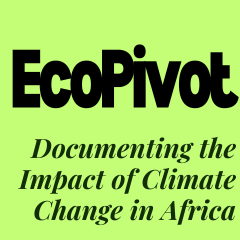Amid the relentless sun and soaring temperatures of Nigeria’s sweltering heatwave, an insidious struggle intensifies within households across the nation.
Inflation, with its unyielding grip, has compelled many Nigerians to abandon modern cooking fuels in favour of charcoal and firewood—a regressive shift with dire consequences for both people and the environment.

According to the Nigerian Bureau of Statistics, inflation rate surged to 33.95% in May 2024, a staggering increase that has pushed the cost of essential commodities, including cooking gas, to unprecedented heights.
This economic strain has left millions of Nigerians with little choice but to revert to more traditional and perilous methods of cooking.
The United Nations Environment Programme (UNEP) highlights that over 70% of households in rural Nigeria rely on biomass for their daily cooking needs, a stark contrast to the urban migration towards cleaner energy sources in Europe.
The Nigerian government, grappling with the economic fallout and environmental implications, confirmed that the price of liquefied petroleum gas (LPG) has skyrocketed by over 46% in the past year.
This spike has disproportionately impacted low-income families, who already spend a significant portion of their earnings on basic necessities. Consequently, the use of charcoal and firewood has risen by an alarming 68%, according to data from the Energy Transition, quoting the Nigerian Bureau of Statistics in 2022.
“There’s currently a mass wave of charcoal usage due to the high cost of refined fuel, ” says environmental activist Shak Steven Umaru. “The reliance on biomass exacerbates deforestation and exposes Nigerians to harmful indoor air pollution.”
The World Health Organization (WHO) corroborates this, estimating that household air pollution causes approximately 3.2 million deaths annually. This grim statistic shows the health hazards that accompany the economic hardships faced by the populace.
Moreover, the environmental toll is severe. Nigeria loses approximately 350,000 to 400,000 hectares of forest each year, driven by the insatiable demand for firewood and charcoal, according to the Global Forest Watch. This deforestation accelerates climate change, further intensifying the heatwaves that grip the nation.
Amid these challenges, initiatives aimed at promoting sustainable energy solutions have gained traction. Organisations like Springs Strategy Limited and Lala Green Foundation – founded by Shak Steven Umaru – an economist and climate change advocate, are leading an audacious mission to plant and nurture 10 million economic trees in each state of Northern Nigeria.
His goal is not just to combat climate change, but also to stave off the creeping menace of poverty.

Growing Crisis
Northern Nigeria, a region of stark contrasts and unyielding challenges, is at the epicenter of an environmental catastrophe.
The once-thriving forests are now skeletons, stripped bare by the unrelenting demand for charcoal and firewood.
“The use of charcoal is a desperate measure for many households,” Shak explained. “Cutting down trees for conversion to charcoal or firewood to meet cooking needs is the biggest contributor to the current heat wave we’re experiencing.”
The Nigerian Meteorological Agency (NIMET) confirmed a sharp increase in temperature (39 °C) between March and May 2024, a shift that threatened to transform the nation into a cauldron.
Heatwaves are no longer seasonal; they are a perpetual affliction, sapping the strength of those who live under their relentless assault, Shak said: “It generally slows down everyone experiencing it. Heat makes one less productive.” According to Scientific American, annual worker productivity losses due to extreme heat averaged $44 billion across 12 US cities. These losses are projected to increase to $84 billion by 2050.
Economic and Agricultural Decline
The repercussions of this environmental degradation in Nigeria extend beyond the immediate discomfort of heat.
The lush, fertile lands that once defined the Northern region are withering, taking with them the agricultural bounty that sustained local economies.
“As productivity slows down due to the inability of the land to yield bountifully, the desire of the population to work at optimal capacity falls,” Shak noted.
Reflecting on his own childhood, Shak painted a poignant picture. “As little children, we constantly saw butterflies and bees. Right now, I’m not sure a lot of children in the cities see butterflies or bees. It’s a dangerous situation,” he said. His words depict the loss of biodiversity, a silent indicator of ecological collapse.
The Challenge of Adaptation
Adaptation, in a land where the basic necessities are increasingly scarce, seems an insurmountable challenge, he said.
Cold drinking water and air conditioning, taken for granted elsewhere, are luxuries here. “We can’t be talking about adaptation,” Shak asserted with a palpable sense of urgency. “We should rather be talking about employing immediate measures to solve the problem which can also not be solved in the short term.” The World Bank’s research in 2021 reveals that 85 million Nigerians lack access to grid electricity, compounding the challenges of climate adaptation.
Solutions and Initiatives
Shak is a fervent advocate for renewable energy.
“Renewable energy policy, if properly implemented, will herald the backtracking of the dangerous indifference to the effects of climate change and a reversal of the damages already done,” he said. In terms of agricultural resilience, Shak emphasised the vital role of irrigation and mechanisation.
With erratic rainfall and delayed seasons, irrigation is not just beneficial—it is essential. The Lala Green Foundation has set a bold precedent, training young people in irrigation agriculture and heavy machinery engineering across Northern Nigeria.
“That’s the way forward seeing that population is growing at a geometric rate in Nigeria while food supply stalls,” he stated.
The stark reality remains: Nigeria, a country rich in natural resources, finds itself ensnared in a paradox where its people resort to primitive means of survival amidst modern-day challenges.
The need for a coordinated, robust response has never been more urgent. For now, the crackle of firewood and the smoky scent of charcoal remain poignant symbols of a nation grappling with the relentless pressures of inflation and the ever-rising heat.


